Doctors Reveal the 7 Supplements You Should Start Taking This Summer

Summer brings longer days, more time outdoors, and a chance to soak up the sun, but it also places unique demands on our bodies that can leave us feeling a little off balance. With increased activity, sweating, and changes in diet while on the go or vacationing, it’s easy to fall short on essential nutrients that support our well-being. Taking supplements during the summer months can help fill those gaps, giving your body the extra support it needs to stay vibrant, energized, and resilient through all of the season’s adventures.
Michael Barnish, MD, director of precision health at REVIV Global, says that as the seasons shift, so do our nutritional needs. For all of the fun summer can bring, it also comes with “increased UV exposure, allergens, and fluid loss,” the doctor cautions.
He says these changes impact how our bodies use key vitamins and minerals, and subsequently, how much of each we require: “Whether you’re looking to strengthen your immune system or tackle the demands of summer, a little extra support can go a long way.” With that in mind, here are the seven supplements doctors recommend taking this summer.
RELATED: The No. 1 Supplement Causing Dangerous Liver Damage, Doctors Warn.
1
Vitamin C
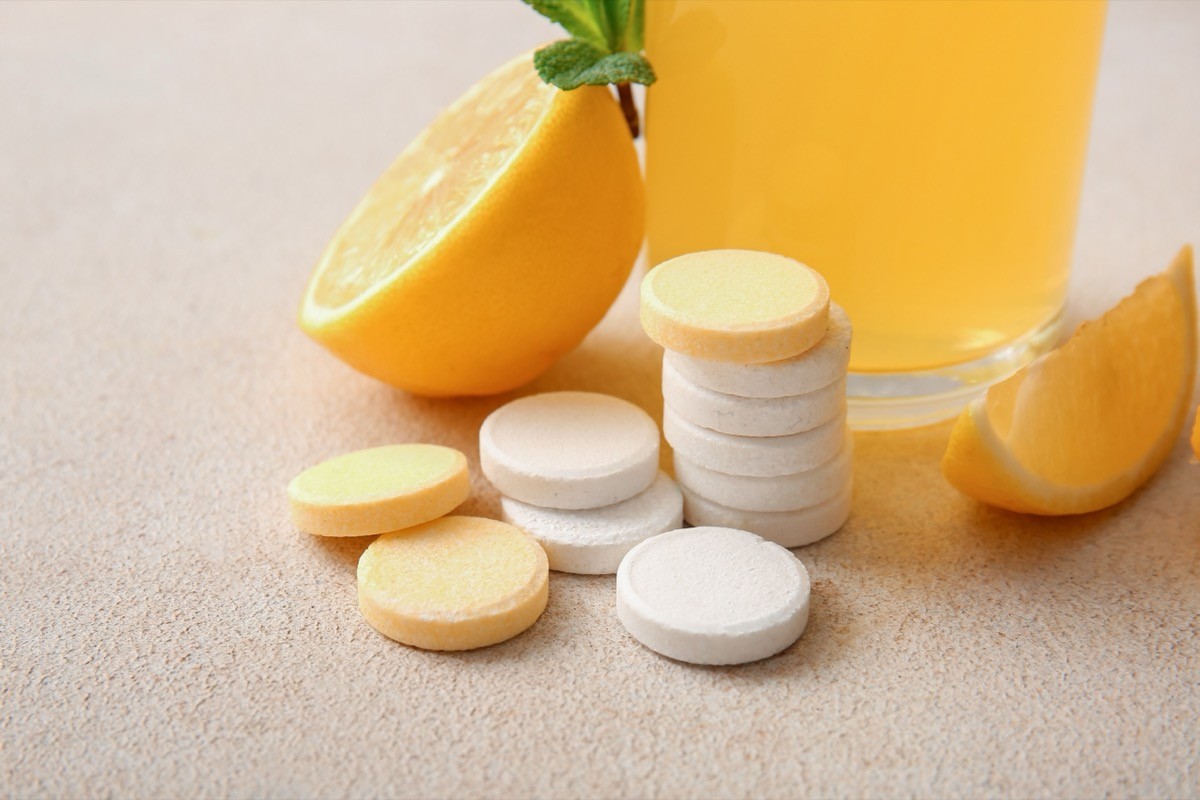
Vitamin C-rich foods—think guavas, kiwis, peppers, broccoli, and citrus fruits—are always a good idea. But Barnish says you may notice some special benefits when you get plenty of vitamin C during the warm-weather months.
“Vitamin C is well-known for its role in boosting the immune system, but during summer, it’s also crucial for managing seasonal allergies,” he explains. “Studies show that Vitamin C has antihistamine properties, with one study demonstrating that chronic Vitamin C intake reduced blood histamine levels by 38 percent, helping to mitigate allergy symptoms.”
Beyond its allergy benefits, Vitamin C also acts as a potent antioxidant, protecting cells from oxidative stress caused by increased UV exposure during the summer months. While it’s no replacement for traditional skin protection, such as a high-SPF sunscreen, you’ll enjoy an added layer of protection.
2
Vitamin D
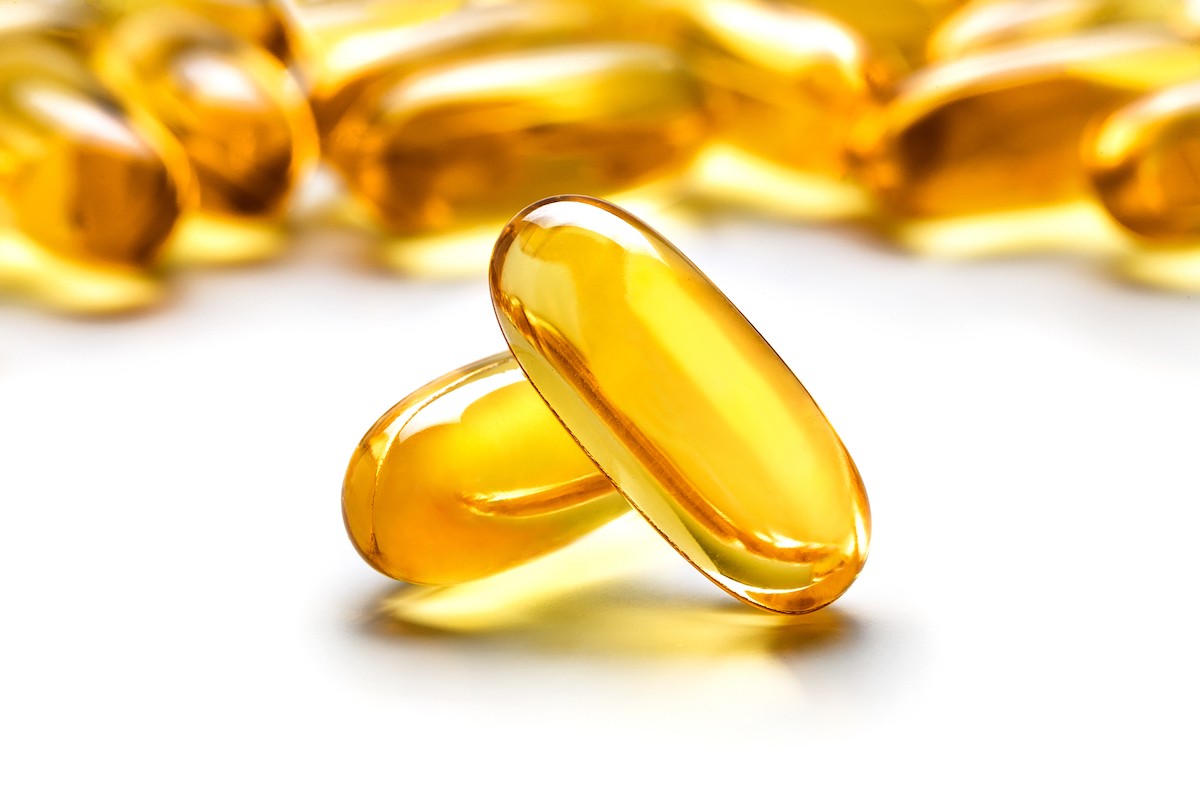
Vitamin D helps your body absorb calcium and phosphorus, both of which support strong bones and muscles. Some studies show that it can also help protect against chronic illness, including cardiovascular disease, diabetes, autoimmune diseases, infectious diseases, and even cancer.
Many doctors recommend taking Vitamin D in the winter, when we’re less likely to develop it naturally through sun exposure. However, Barnish notes that “summer sun may not automatically be enough for everyone,” and says that a simple blood test can determine if you need additional supplementation.
“While our body naturally produces Vitamin D when exposed to the sun, some may still need supplements, especially those who spend little time outdoors, use high-SPF sun protection, or live in northern latitudes,” the doctor tells Best Life. “It’s important to get around 15 minutes of sun exposure two to three times a week on 25 percent of your body, but this amount may vary based on your skin tone.”
RELATED: 8 Surprising Vitamin D Side Effects, According to Doctors.
3
Electrolytes
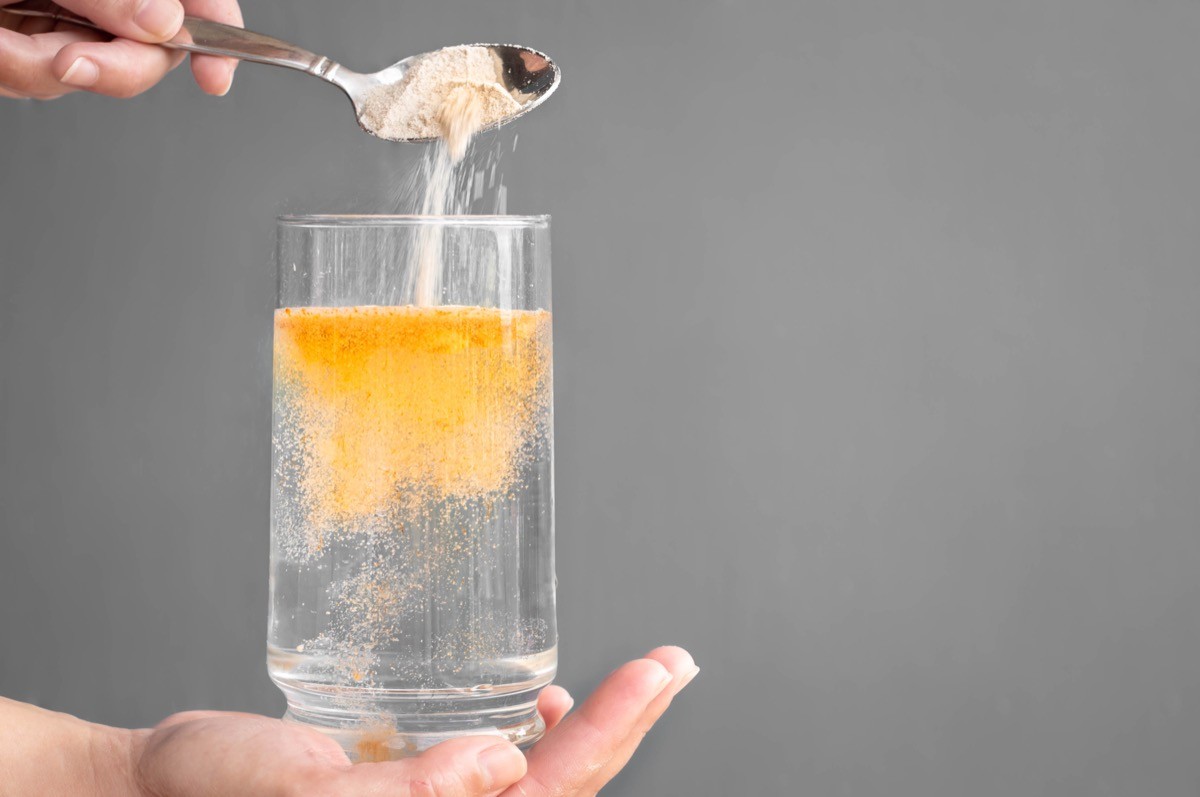
We all know the importance of staying hydrated in the summer, when the heat is at an all-time high. Since dehydration and electrolyte imbalances go hand in hand, it’s also a good idea to supplement with these crucial minerals.
“Sweat contains essential electrolytes and minerals like magnesium, potassium, sodium, and chloride, which are all effectively lost as we sweat,” explains Austin Shuxiao, MD, a board-certified internal medicine physician at UHS Wilson Hospital. “It’s important to imbibe drinks that contain electrolytes, since they’re more effective than plain water for preventing cramps.”
4
Magnesium
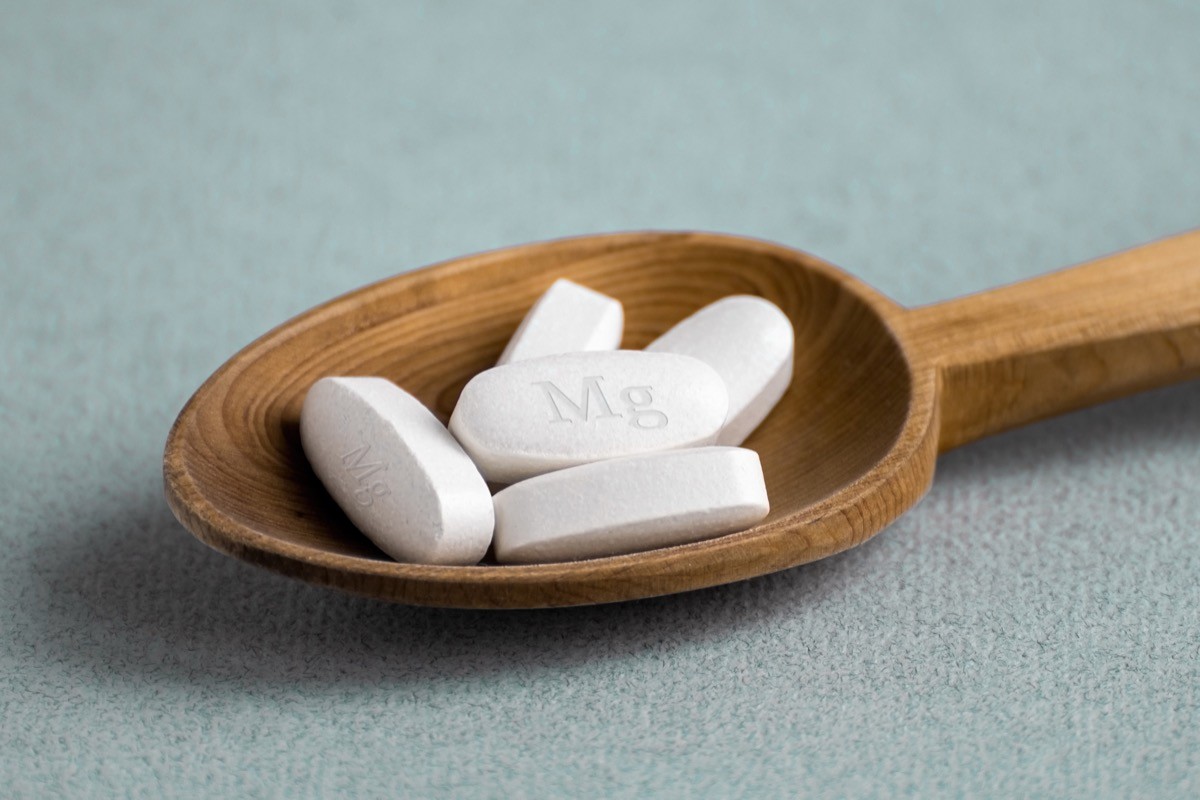
Many people take magnesium to help regulate their mood, improve sleep, and boost heart health, but that just scratches the surface of the supplement’s potential uses.
“Magnesium is essential for hundreds of enzymatic reactions in the body, supporting muscle function, nervous system regulation, and energy production. It also plays a key role in the metabolism of Vitamin D, helping activate and enhance its benefits,” explains Barnish.
Additionally, magnesium has some summer-specific benefits, specifically that it’s vital for the body’s antioxidant defence system, protecting against oxidative stress caused by UV radiation, Barnish notes. It also helps regulate fluid balance, especially when you’re sweating due to high heat.
“Sweating leads to the loss of electrolytes like magnesium, which can disrupt cellular functions. Research highlights the importance of replenishing magnesium after exercise in hot conditions to maintain electrolyte balance and avoid deficiencies,” he adds.
RELATED: Doctor Says You Might Be Taking the “Wrong” Magnesium—Here’s How to Know.
5
Zinc
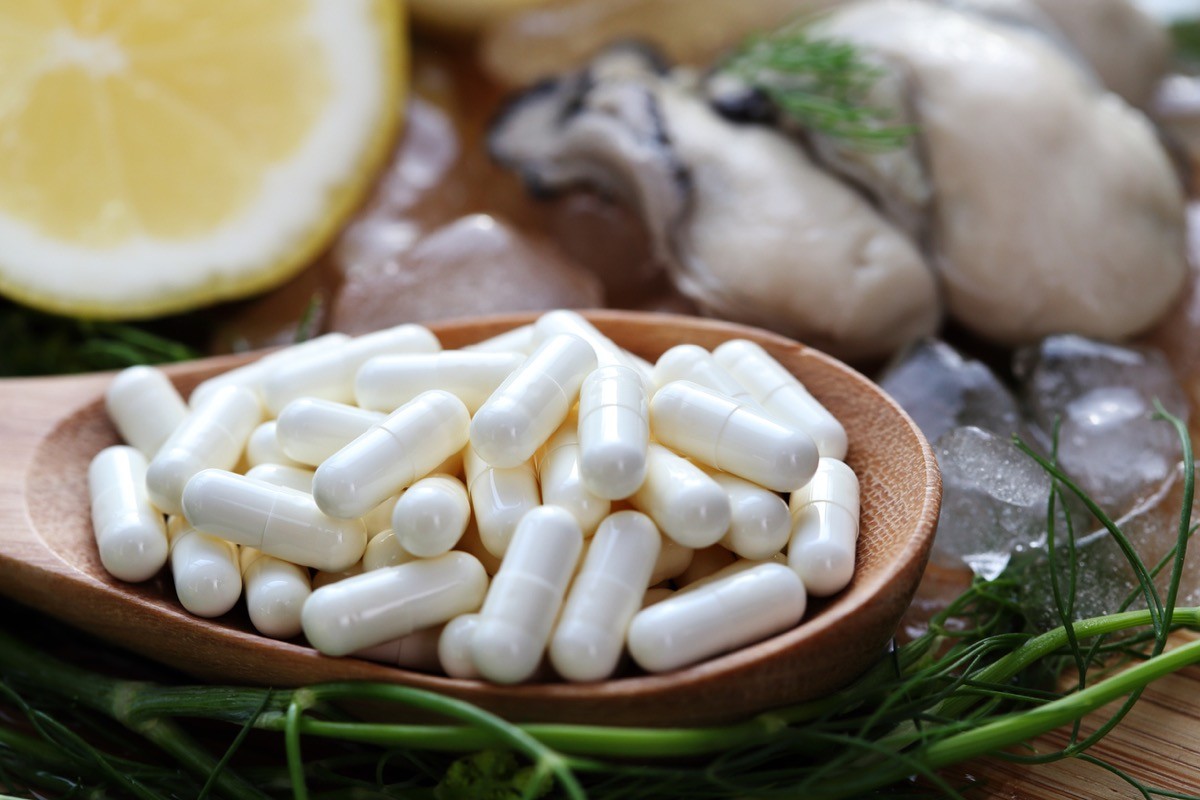
Most often, when people take zinc, it’s to boost immune function and promote healing—and that’s useful all year-round.
However, Barnish recommends taking it this summer to promote healthy skin and defend against sun damage. He notes that zinc plays a key role in the function of melanocytes, the cells responsible for producing melanin (the pigment that helps protect skin from UV light).
“Zinc is essential during the summer months due to its role in managing inflammation caused by UV exposure and environmental stressors, such as pollen or frequent travel,” he explains. “It helps regulate skin barrier function by supporting the tight junctions between skin cells, preventing excessive fluid loss from sunburn.”
6
Probiotics
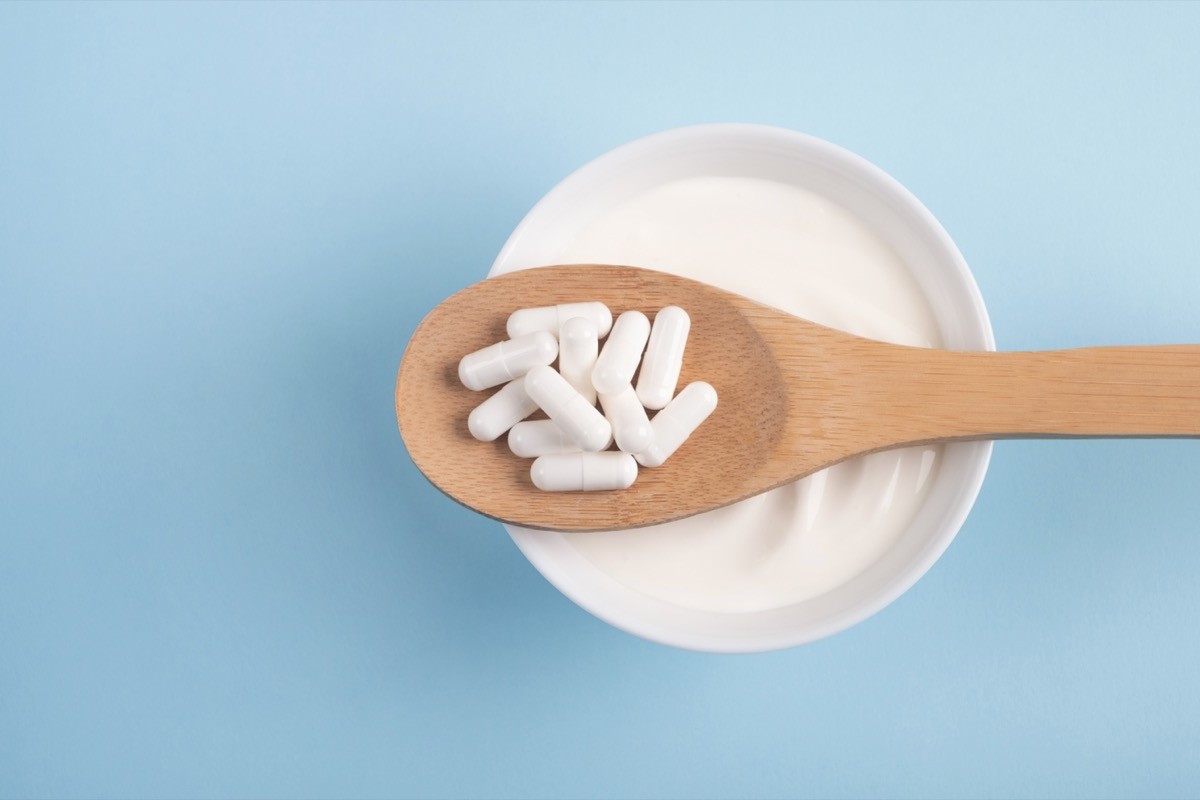
Summer travel plans can quickly head south if your tummy isn’t up to the task of eating on the road. That’s why Shuxiao recommends taking probiotics, which can keep your digestion on track as you explore new terrain.
“If you plan to travel this summer, you may be introduced to new foods, and new bacteria on those foods, especially if you visit places where sanitary standards are not the same as home,” he says. “Probiotics may protect against foreign pathogens in the gut, and can reduce the likelihood of foodborne illness or traveler’s diarrhea.”
RELATED: 21 Surprising Signs You Have a Vitamin Deficiency.
7
Selenium
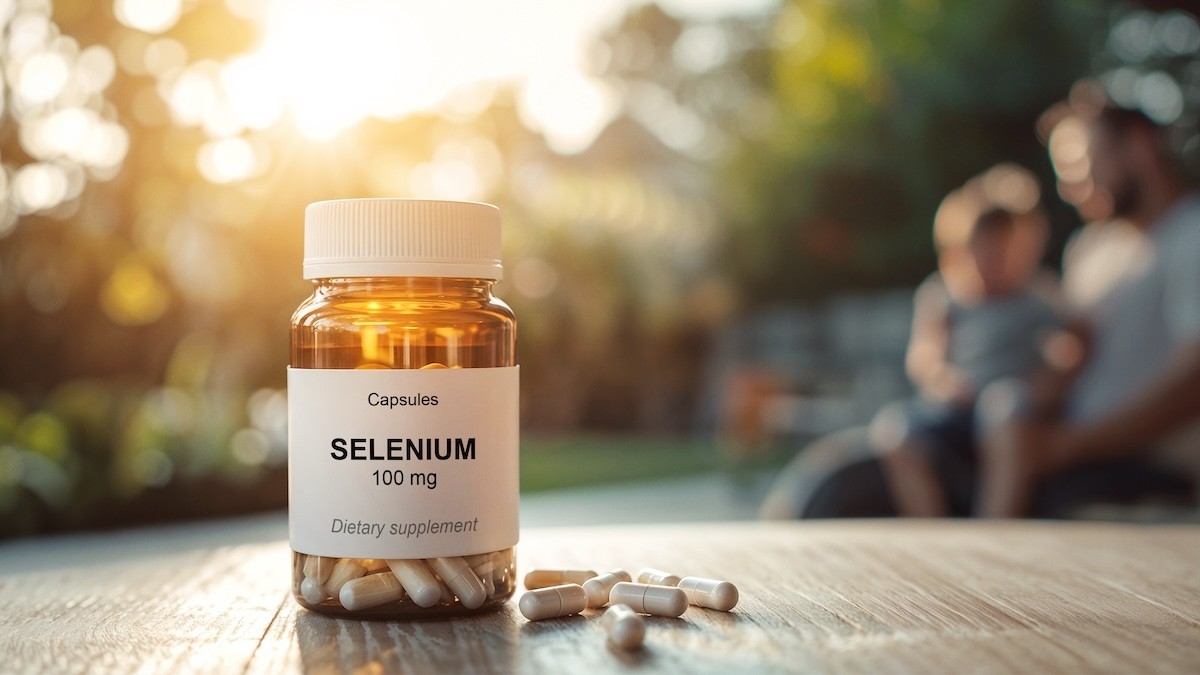
Selenium can be found naturally in Brazil nuts, seafood, and organ meats, but Barnish recommends adding an extra dose in the form of supplementation this summer.
“Selenium plays a crucial role in the body’s antioxidant defense system by helping to produce selenoproteins. These proteins neutralize free radical toxins generated by UV radiation, protecting skin cells from oxidative damage and inflammation,” he explains. “This is particularly important during the summer when increased sun exposure can put skin under stress.”
Additionally, he notes that selenium enhances the activity of immune cells and regulates inflammatory responses, which can be especially beneficial during allergy season.
“It also helps replenish selenium lost through sweating during intense physical activity, so it’s important to maintain adequate intake during the warmer months,” he adds.





















